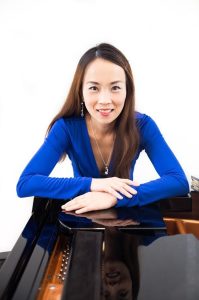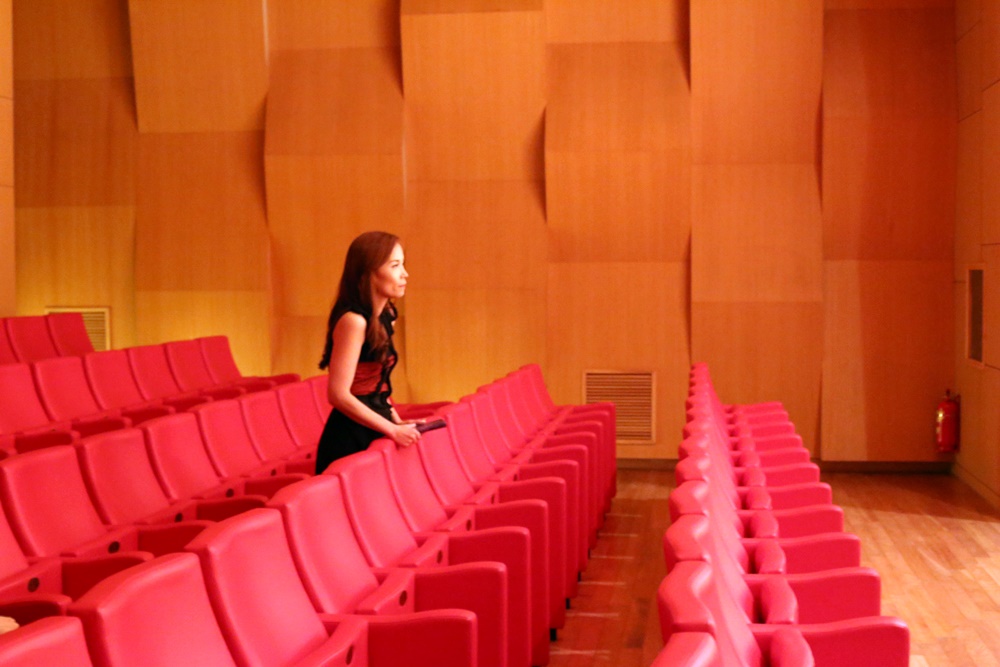Expertise Exceeding Exoticism: Dr. Caroline Ahn, a Skilled Composer, Not a ‘Special’ Case
Words by Okara Imani
At times it’s difficult to discern the line between being made to feel special and being unduly othered, and for some of us existing at the intersection of many human experiences, even more daunting to decide how you feel about any of it. There’s an inherent exhaustion in always feeling like an exception to a rule, an elephant in the room– a realm that historically doesn’t reflect your experience. I heard my own weary musings echoed back to me in alarming clarity when sitting down with composer, Dr. Caroline Kyunga Ahn, and immediately re-assessed, with no little chagrin, my inquiries regarding cultural origins and influence. When asked how the institution of classical music irks her the most, Dr. Ahn shared with me a complicated and very familiar truth: it’s a space that will at once make you feel both special and isolated.
It’s no wonder Dr. Ahn is reluctant to indulge in any further dialogue surrounding her Korean heritage and how it may or may not inform her craft and profession. Classical music has a rather conspicuous tendency to exoticize the sounds and traditions of the Asian continent to the point of marginalizing caricature in some ways. See also ‘pentatonic scale’ and its associations on screen and stage– we get it. And then there’s that ever so familiar feeling again when a professional such as Dr. Ahn, or even myself enter a classical space. The air sort of hums with intrigue and inquiry, and our very presence begs the secret question in their minds: how did you come to be here, performing classically, and existing in such colorful womanhood?
So, rather than continue the othering of a respected professional, I had to check myself and allow her to lead the discussion of her greatest influence and experience in classical music. Dr. Ahn, before all else, is beholden to her role of mother of her children and daughter/follower of Jesus Christ. Those two truths truly ripple throughout her compositional style, context, and content, especially from her original commission for the 2022 Micro Composition Project, a signature program of Classical Music Indy. There was something inevitable, all-knowing about the piece and its swoops and swells, something maternal about the way she illustrated debris-dusted flowers and the hubris of war. She very expressly attributes most of her inspiration to humanism, and that sort of influence in itself is one that transcends man-made boundaries, social constructs, and racialized stereotypes.
 That’s the kind of musician that will always adeptly illustrate raw experience and authentic perspectives in their sound, which Dr. Ahn strives for. It’s also how she shows up for the Sound of Hope players and her students, and in speaking with I can feel she must hold an open, bias-free space for them to learn and explore the classical craft. Her approach is humanist; therefore her perspective strives to be multicultural, steeped in the colors and sounds of her surroundings and interactions. Her music language, her unique dialect, are broader than the borders of the countries that provide her heritage or her profession, and far be it from me to minimize this truth by asking how Korean music traditions ‘have influenced her sound.’
That’s the kind of musician that will always adeptly illustrate raw experience and authentic perspectives in their sound, which Dr. Ahn strives for. It’s also how she shows up for the Sound of Hope players and her students, and in speaking with I can feel she must hold an open, bias-free space for them to learn and explore the classical craft. Her approach is humanist; therefore her perspective strives to be multicultural, steeped in the colors and sounds of her surroundings and interactions. Her music language, her unique dialect, are broader than the borders of the countries that provide her heritage or her profession, and far be it from me to minimize this truth by asking how Korean music traditions ‘have influenced her sound.’
Dr. Caroline Ahn is someone with whom I strongly identify, in our positioning in the classical realm and in from whence we draw our biggest inspiration and influence. That humanism, that authentic and universal language we seek to always draw from, informs the very sound of our work– raw, dramatic, sometimes primal. I find myself reflected in the way she finds The “I” in Classical Music: it’s Intention, it’s instinct, internationally human, and she carries it with love and honor like so many other influential women of the ages.







Leave a Reply